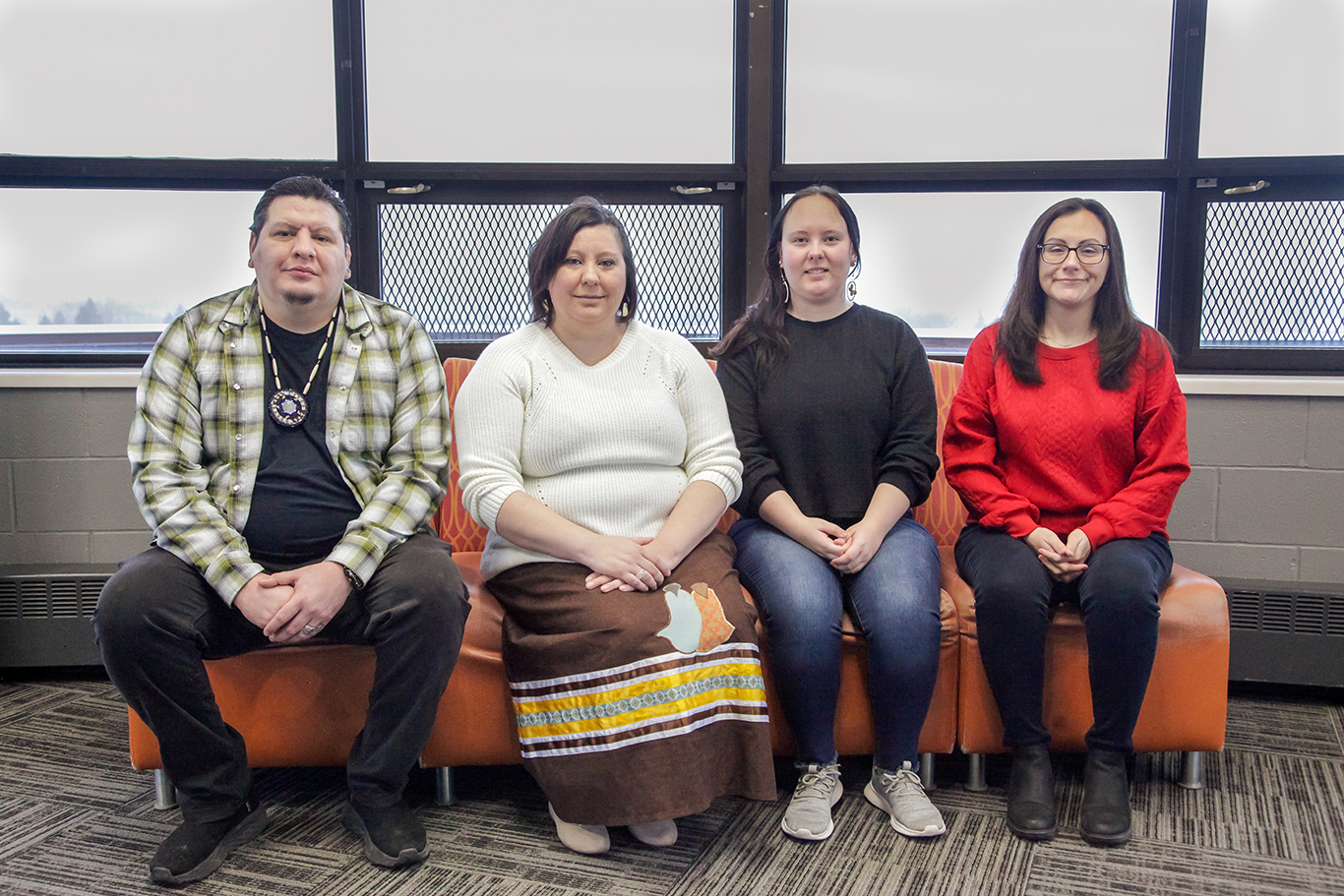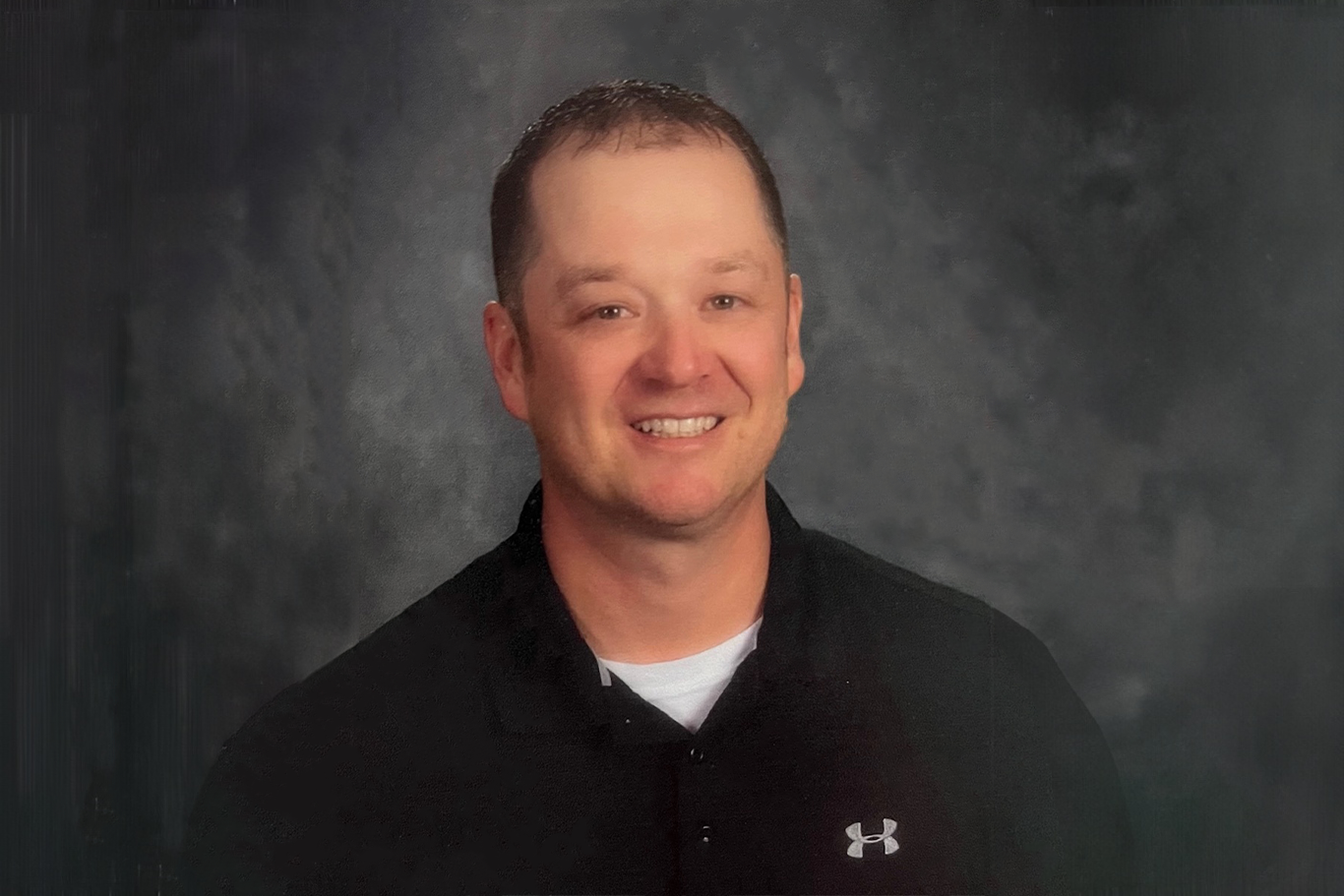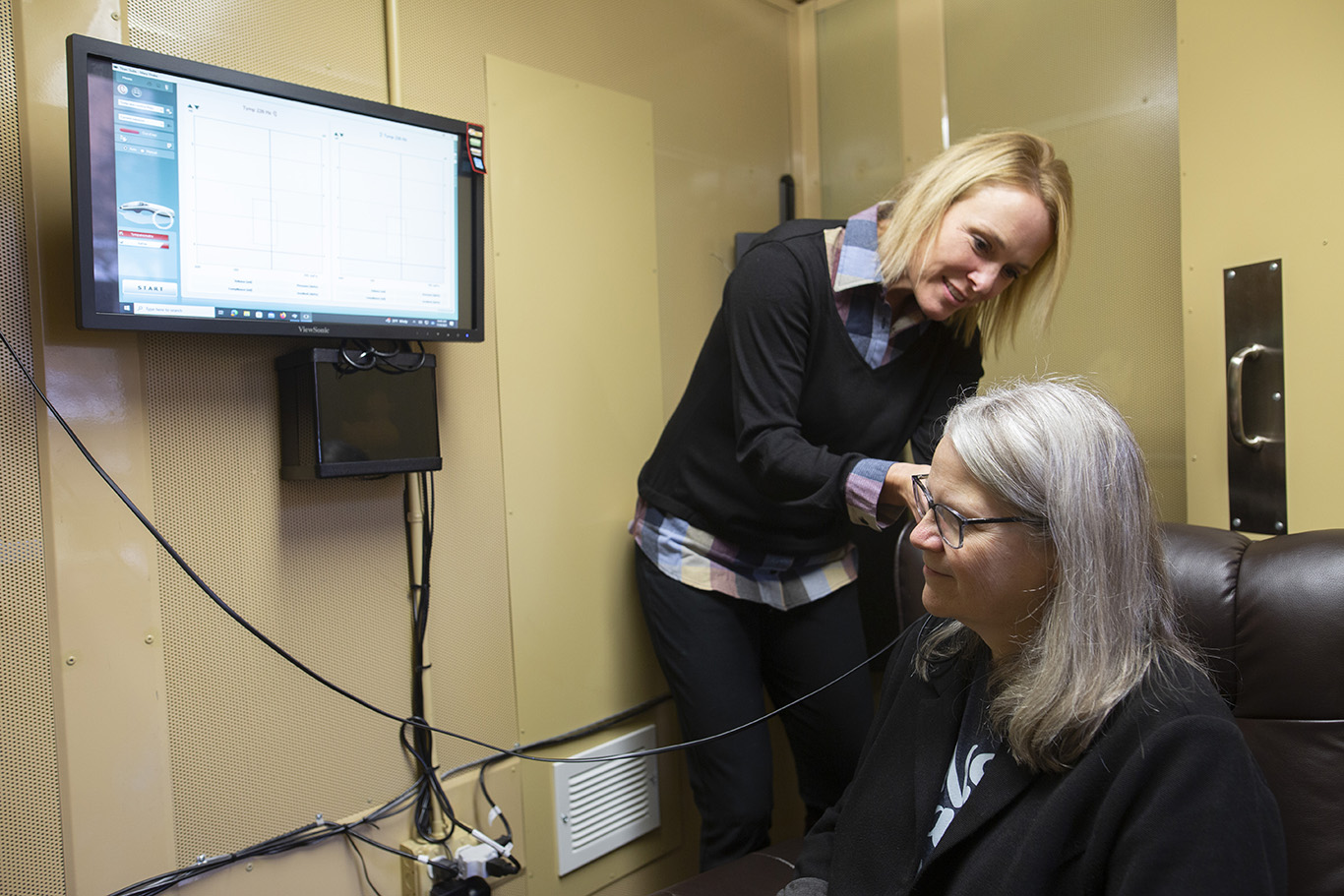MSUM Professor’s Powwow Participation Comes Full-Circle
When Caitlin Johnson, Ph.D., jingle dress dances at the 32nd Woodland and High Plains Powwow this April – it’ll be reminiscent of coming home.
The assistant professor of educational leadership works at MSUM’s Department of Leadership and Learning and is a member of the powwow committee. It’s the Dragons’ turn to host the event, which rotates locations throughout the area. For Caitlin, it’s her triumphant return to jingle dress dancing after a 15-year hiatus.
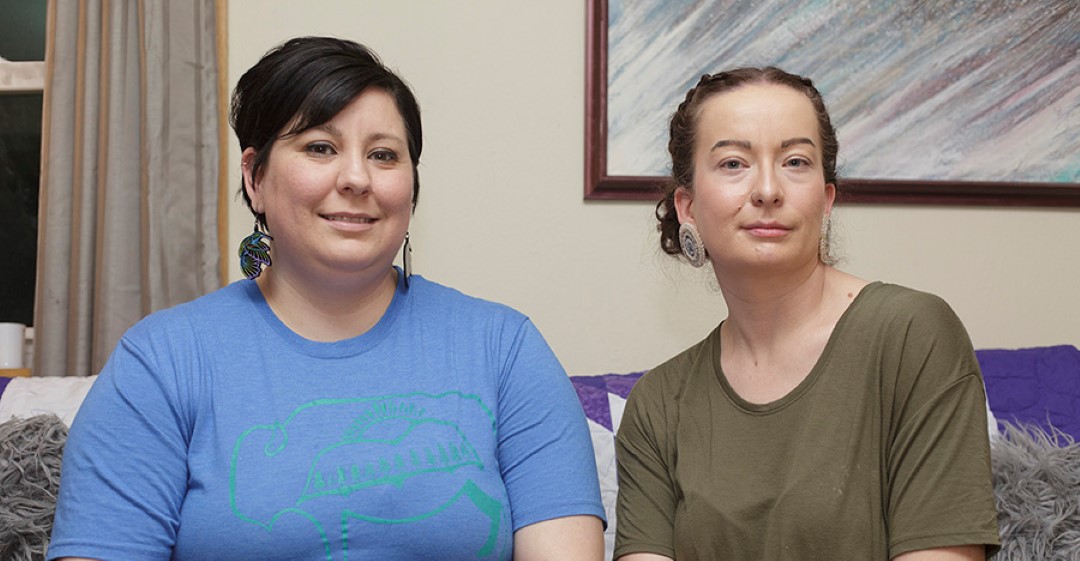
Caitlin Johnson (left) and her sister Whitney Fear (right)
A Welcome Homecoming
“It has been so long since I’ve danced,” said Caitlin. “My brother joked, ‘do you even remember how?’ and I said, ‘My body remembers. My mind may not remember the steps by breaking it down, but my body does.’”
Caitlin, an enrolled member of the Turtle Mountain Band of Chippewa Indians, grew up on her home reservation and started jingle dancing at age five.
“I am excited to dance again,” she said. “It’s hard to describe the feeling when you’re in the powwow circle. There is a spiritual connection…you’re giving yourself to the dance.”
Powwows have a unique meaning for each participant. These gatherings allow Indigenous individuals to celebrate their rich and vibrant ancestral heritage, connect with one another through ceremony, and engage spiritually. Drumming takes place. Songs are sung. Dances are performed. Importantly, prayers are invoked. It is a powerful, moving experience.
Caitlin was taught early on that the jingles on her regalia represent the call for hearing her prayers. “That’s why we drum so loud. We are trying to be heard,” she said.
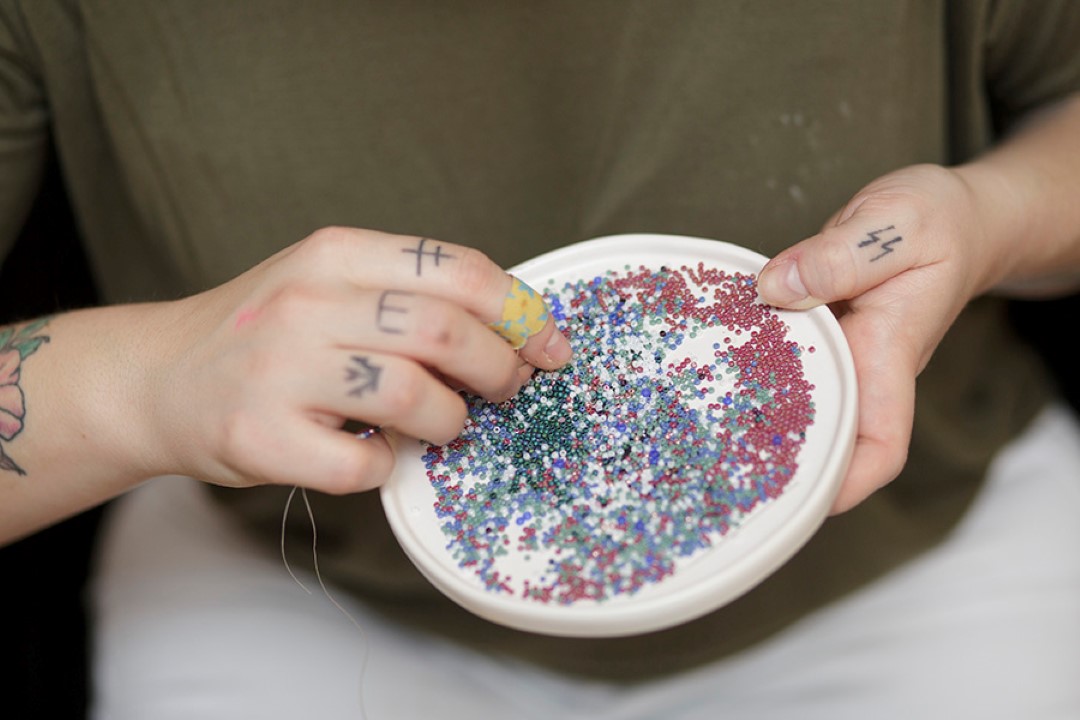
Her jingle dress dancing hiatus began with the loss of loved ones. Her grandma, who helped make her regalia, passed away. Another elder who supported these efforts also passed. With time, Caitlin outgrew her regalia, which was passed on to other family members. Years went by.
When she was in the hospital following the birth of her son, Sage, a custodian came in. He asked about her background and inquired if she was a traditional dancer. She said she used to participate, though she hadn’t had a dress of regalia in many years.
He asked, “If you had enough jingles, would you make another dress?” He received an enthusiastic “yes” – “There is healing in that process,” Caitlin said.
The next day, the man came to room with bag full of jingles and said, “I am going to gift these to you. They are not enough of what you need, but enough to get you started.”
This spark ignited a flame.
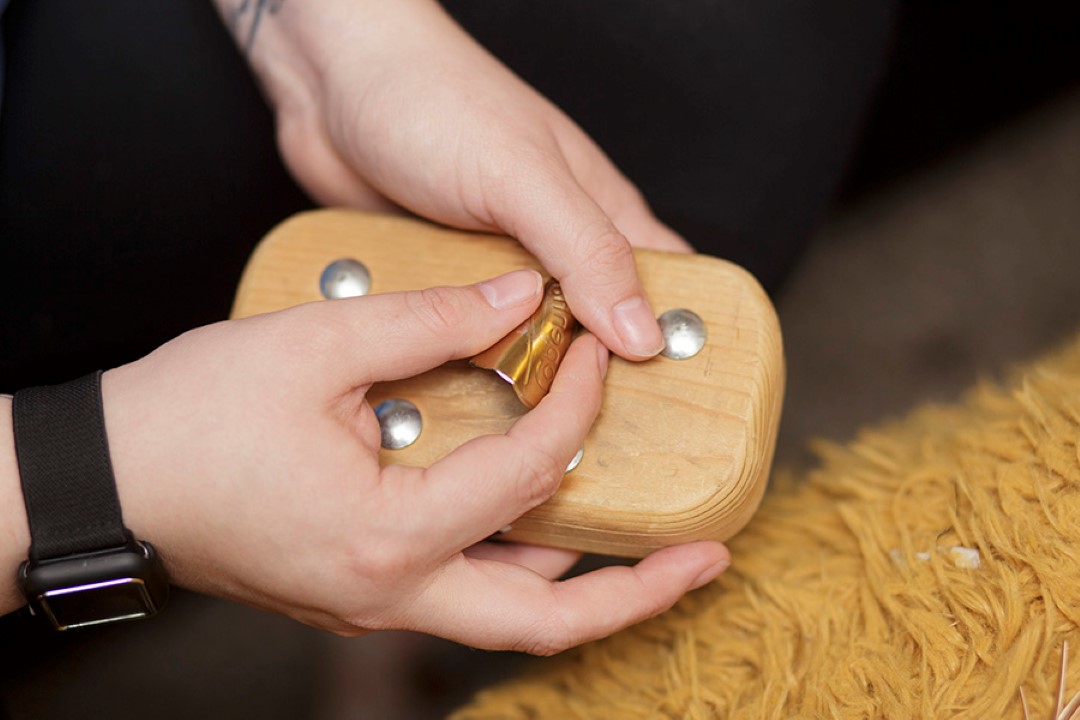
Caitlin received a cone shaper as a gift, then a bag of pre-rolled jingles. She gathered ribbons based on colors the medicine man assigned her at a traditional naming ceremony when she was young. She started taking her son to powwows. He has autism and a sensory processing disorder, which initially made it hard for him to attend. Caitlin slowly introduced him – 20 minutes, then 45 minutes at a time. Now, the 11-year-old is eager to dance himself. He recently asked Caitlin’s sister-in-law, Whitney Fear, a Lakota woman who grew up on the Pine Ridge Reservation, “Is there a way we can do a headpiece where I can have my silicon earplugs in, and you can hide them with the headpiece?”
Through the support of her community, she is ready to rejoin the circle. “When our elders pass, they are taking that knowledge with them,” she said. That was part of what got Caitlin into teaching in the first place. “We need to make sure those traditional forms of art and knowledge stay from generation to generation.”
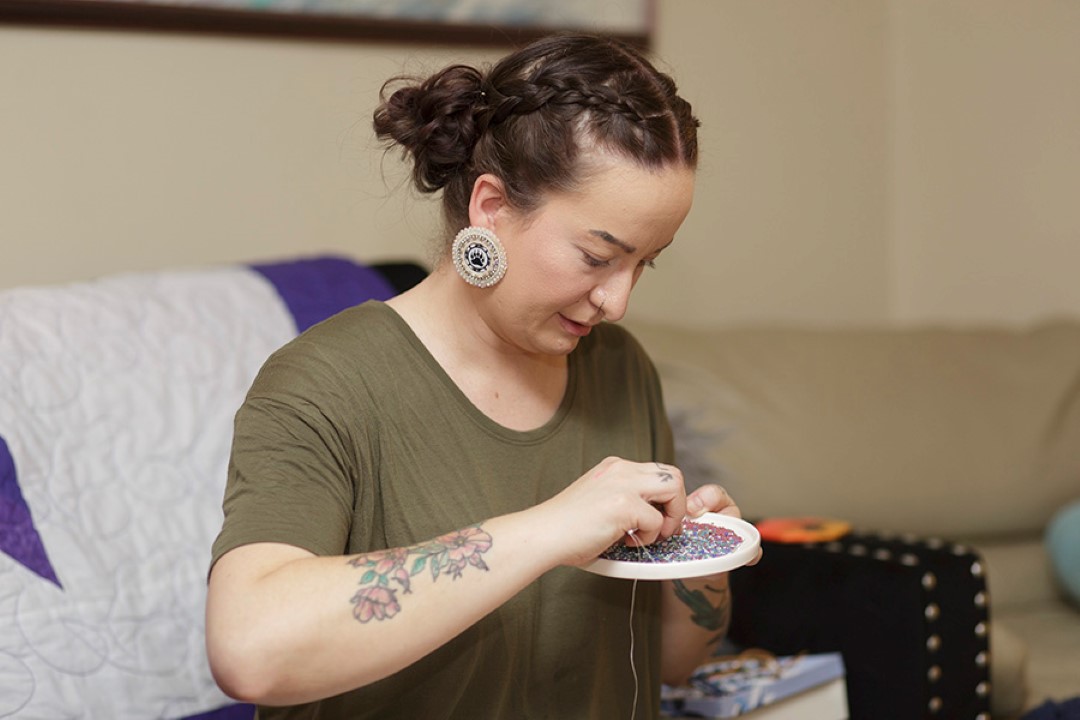
An Alternative Path to Education
Caitlin’s path to her current role at MSUM proves the promise of seeking individual options.
At 16, she struggled with mainstream high school as she navigated an anxiety and panic disorder, so she announced to her parents that she wanted to drop out to join an alternative high school.
“As an adult now, with a child of my own, I can see just how hard that was for them,” Caitlin said. With her supportive parents’ blessing, she switched schools and flourished – going on to attend classes at a tribal college early and developing a passion for education.
“There’s this misconception of why students go to an alternative program,” Caitlin said. “Each kid is so different. They have their own story, and that story matters.”
She started her career at the Turtle Mountain Community College teaching English. “It was my first glimpse at what it was like to be a teacher,” Caitlin said. “I took on that challenge because that’s what my community needed.”
In the years following, she transitioned to secondary education, where she served as the English department chair, then moved on to alternative education after moving to the Fargo-Moorhead area. Here, she taught at Dakota High School. “It was full circle because I had graduated from an alternative high school program, and here I was teaching at one,” she said proudly.
As a newer member of the Dragon faculty, Caitlin said of her excitement in working with MSUM and its hosting of the powwow this year, “Representation matters; I can’t stress that enough. Indigenous people are underrepresented as is, and that’s why events like this are so important in the community.”
Make Sure Your Story Is Heard
Let us know how your life has been changed by being a Dragon: tell us your MSU Moorhead story today!
Send Us Your Story
